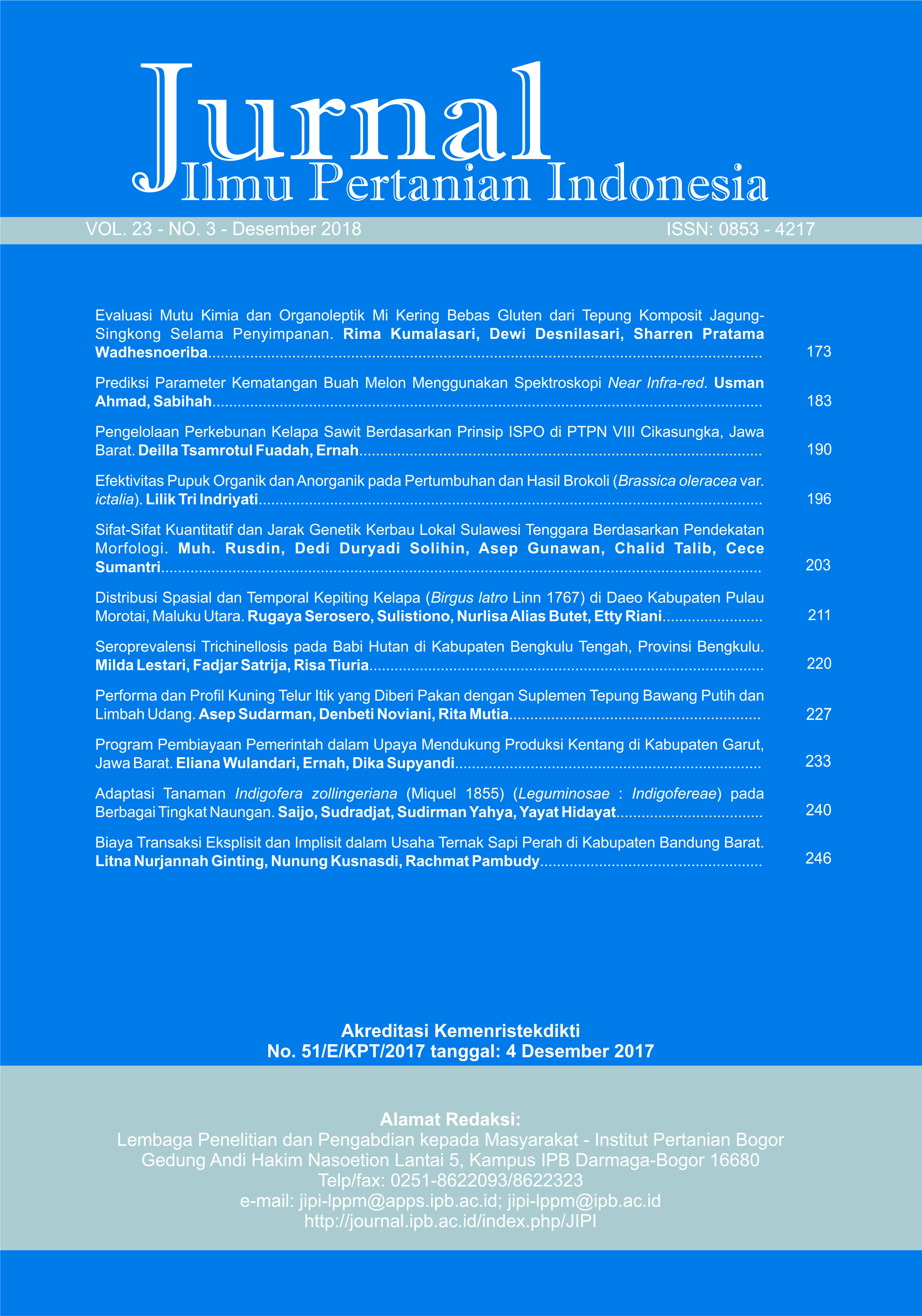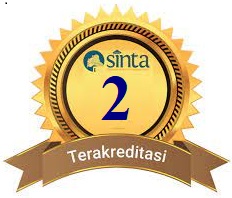Pengelolaan Perkebunan Kelapa Sawit Berdasarkan Prinsip ISPO di PTPN VIII Cikasungka, Jawa Barat
Abstract
Indonesia is a major producer and exporter of palm oil in the world. The high demand of international market for environmentally friendly palm oil is the reason for Indonesian government to issue standard ISPO (Indonesian Sustainable Palm Oil) policy in 2011. ISPO is a standardization of oil palm plantation which aims to support the creation of environmentally friendly and sustainable palm oil products and mandatory for palm oil companies in Indonesia. Good management of oil palm plantations are those that comply with seven principles of ISPO. This research use some principles of ISPO, the first principles on the legality of the plantation business, the second principle of plantation management, and the fourth principle related to environmental monitoring and management. This study aims to determine the extent to which the application of plantation management in accordance with the criteria and the first, second, and fourth principle of ISPO in PTPN VIII Cikasungka. The research design used was qualitative descriptive with triangulation data collection techniques. The result of the research stated that PTPN VIII Cikasungka has been sufficiently suitable to manage plantation based on the first, second, and fourth principle of ISPO standard.
Downloads
References
Arief S, Nawa S, Reba AP, Joko PS. 2017. Energi Terbarukan dan Penguranagan Emisi Gas Rumah Kaca Dari Palmoil Mill Effluent. Jurnal Teknologi Lingkungan. (18)1: 88-95.
Dina H, Chozin, MA, Fauzi AM. 2012. Analysis on Indonesian Sustainable Palm Oil (ISPO): A Qualitative Assessment on the Success Factors for ISPO. Jurnal Manajemen & Agribisnis. 9(1): 39-48.
Dewi A. 2014. Analisis Lingkungan Sosial Ekonomi Pengelolaan Perkebunan Kelapa Sawit Berkelanjutan Berdasarkan Kriteria ISPO (Studi Kasus PT. X Kalimantan Selatan). [Tesis]. Bogor (ID): Institut Pertanian Bogor.
Henry L. 2002. Teknologi Pengelolaan Limbah Industri Kelapa Sawit. Jurnal Teknologi Lingkungan. 3(3): 242-250.
Imansari SY. 2015. Penetapan Kebijakan Indonesia Sustainable Palm Oil Pada Tahun 2011. [Skripsi]. Jember (ID): Universitas Jember.
Istianto BR, Sri RA. 2017. Rencana Pengelolaan Limbah Cair Pabrik Kelapa Sawit (LCPKS) untuk Land Application. Jurnal Citra Widya Edukasi. 19(1): 9-16.
Krystof O. 2013. Fact File – Indonesia World Leader in Palm Oil Production. [Internet]. [diunduh 2017 Agustus 29]. Tersedia pada: https://forestsnews. cifor.org/17798/fact-file- indonesia-world-leader-in-palm-oil- production?fnl=en.
Mentari DG. Kementan: 346 Perusahaan sawit peroleh sertifikat ISPO. Antaranews. Web. [Internet]. [diunduh 30 Desember 2017]. Tersedia pada: https://www.antaranews.com/berita/670284/kementan-346-perusahaan-sawit-peroleh-sertifikat-ispo.
Netty K. 2014. Karakterisasi dan Potensi Pemanfaatan Limbah Sawit. Bandung (ID): Itenas Library.
Petrus NR. 2006. Teknologi Pengelolaan Limbah Cair yang Ideal untuk Pabrik Kelapa Sawit. Jurnal Pusat Pengkajian dan Penerapan Teknologi Lingkungan. 2(1): 66-71.
Petrus NR. 2009. Studi Banding Teknologi Pengolahan Limbah Cair Pabrik Kelapa Sawit. Jakarta (ID).
Prisman ALS. 2017. Kajian Aspek Sosial Dan Lingkungan Perkebunan Kelapa Sawit Berdasarkan ISPO (Indonesian Sustainable Palm Oil) di PTPN VIII Tambaksari Subang, Jawa Barat. [Skripsi]. Sumedang (ID): Universitas Padjadjaran.
Sugiyono. 2017. Metode Penelitian Kuantitatif, Kualitatif, dan R&D. Bandung (ID): Alfabeta.
Terry, George R, Leslie W, Rue. 2011. Principles of Management. Jakarta (ID): Bumi Aksara.
[USDA] United States Department of Agriculture. 2017. Oilseeds: World Markets and Trade. USA: USDA.
This journal is published under the terms of the Creative Commons Attribution-NonCommercial 4.0 International License. Authors who publish with this journal agree to the following terms: Authors retain copyright and grant the journal right of first publication with the work simultaneously licensed under a Creative Commons Attribution-NonCommercial 4.0 International License. Attribution — You must give appropriate credit, provide a link to the license, and indicate if changes were made. You may do so in any reasonable manner, but not in any way that suggests the licensor endorses you or your use. NonCommercial — You may not use the material for commercial purposes.























